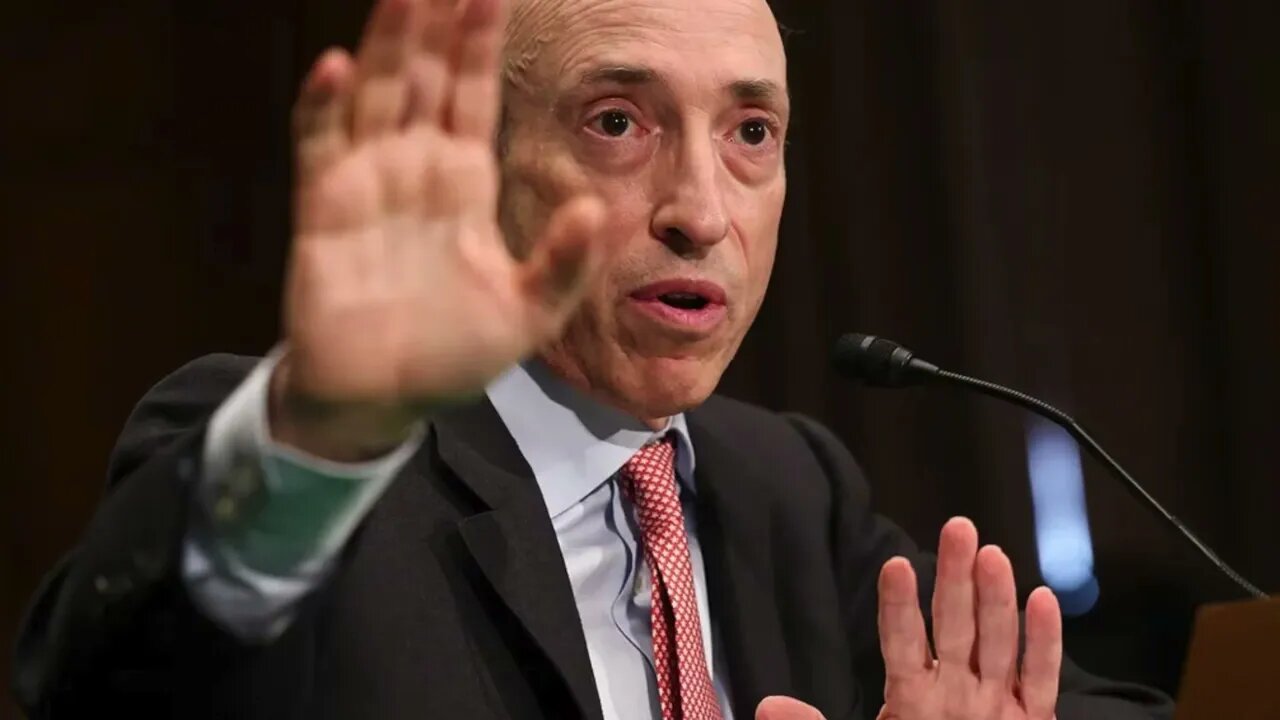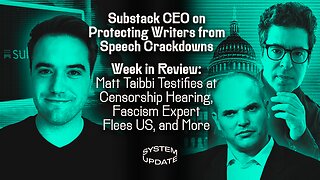Premium Only Content

The SEC Is Fighting the Last War
The U.S. Securities and Exchange Commission’s (SEC) one-two punch of suits against Binance and Coinbase this week hardly came out of the blue. The question of how to regulate crypto exchanges has been at a high simmer for years, and while the specifics of their approach are eminently debatable, the SEC was bound to go after the big boys sooner rather than later.
But the messaging surrounding the suits makes the SEC’s recent moves seem reactive, political and frankly, just beneath the bluster, weak. Specifically, the SEC seems to be trying to put Coinbase and Binance into the same bucket as the frauds of 2022, such as Luna, Celsius and above all FTX. The SEC has been widely viewed as giving FTX deferential treatment before it was revealed as a massive fraud, so now it’s demonstrating that it really can be a hard-nosed regulator – it’s just doing so a couple of years late, and to the wrong targets.
Essentially, the SEC wants the public to see the current suits as part of a campaign against fraud. In reality, the suits represent a paternalistic attempt to keep people from making what the SEC views as the wrong kind of investments. That conflation is obviously deeply unfair, both to the companies being targeted – Coinbase especially – and to an American public that looks to the SEC for expertise.
Crimes and sins
The SEC, like all legislators and regulators, can’t be expected to distinguish between crimes that break the law, and sins that actually harm and exploit people. Regulators enforce codes, not morality itself – but that doesn’t mean such distinctions don’t exist.
The SEC’s core claim in its charges against Coinbase is simply that the exchange “has made calculated business decisions to make crypto assets available for trading in order to increase its own revenues, which are primarily based on trading fees from customers.”
There’s a complex debate to be had about whether Coinbase could have complied with the rules in the way the SEC says it should have. But the substance of the SEC claim here is that Coinbase broke the rules by creating a service that customers (including me) actually used, and then tried to make it better.
Whatever that is, to paraphrase Mae West, it ain’t no sin.
Yet the Coinbase charges are being tortuously represented as protecting investors against some manipulative, horrifying predator. SEC director of enforcement Gurbir S. Grewal, in a quote which the SEC has highlighted on social media, alleges that “Coinbase’s calculated decisions allowed it to earn billions … at the expense of investors by depriving them of the protections to which they were entitled.”
Binance, by contrast, does stand accused of a few things that look like genuine sins, particularly price manipulation that harmed customers. But other charges against Binance amount to a denial of its right to provide services that its customers clearly want.
If the protections Grewal wants include standards for reporting and transparency around assets similar to what exists in the stock market, it seems clear both U.S. and global exchanges would welcome such a regime.
But in fact, the SEC appears to think crypto exchanges are exploiting their customers simply by allowing them to do anything so foolish as buying cryptocurrency under their own free will.
‘We don’t need more digital currency.’
The SEC’s suit against Coinbase in particular hinges on the moral presumption that cryptocurrency is inherently fraudulent and valueless. This allows them to paint Coinbase CEO Brian Armstrong as the same as Sam Bankman-Fried in the public eye – despite the fact that the first has run a stable and trustworthy service for a decade, and the second was an incompetent boob with zero moral compass or basic mathematical ability.
SEC Chair Gary Gensler advanced that muddying agenda this morning on CNBC. He first made noises about the SEC’s supposed neutrality on asset quality. But he then launched into a sweeping and frankly boneheaded disquisition against crypto as such, declaring that "we don't need more digital currency, we have digital currency. It's called the U.S. dollar. It's called the euro. It's called the yen. They're all digital right now."
This is not just an embarrassing misrepresentation, but one Gensler must know the truth of. After all, he taught MIT students about blockchains. He can’t possibly actually believe there’s no distinction between the banking rails over which he and the rest of the U.S. government have incredibly oppressive, direct and politicized control, and monetary cryptocurrency networks they don’t and ultimately can’t control.
See also: Best Universities for Blockchain 2022: Massachusetts Institute of Technology
Gensler appears fully pot committed, in short, to misrepresenting the underlying facts to the public.
#crypto #cryptocurrency #cryptocurrencies #sec #coinbase #binance #cardano #solana #ethereum #bitcoin
-
 LIVE
LIVE
Akademiks
2 hours agoDay 1/30 Kanye West Interview Part 2 OTW. Young Thug Probation REVOKED? Lil Baby Putting Hits on Ppl
5,545 watching -

Man in America
8 hours agoPam Bondi Wants the DEATH PENALTY—But Was Mangione FRAMED? The Evidence Will SHOCK You
25.2K9 -
 1:30:51
1:30:51
Glenn Greenwald
6 hours agoSubstack CEO on Protecting Writers from Speech Crackdowns; Week in Review: Matt Taibbi's Censorship Hearing Testimony, Fascism Expert Flees the U.S., and More | SYSTEM UPDATE SHOW #433
128K82 -
 10:57:58
10:57:58
Dr Disrespect
12 hours ago🔴LIVE - DR DISRESPECT - PGA TOUR 2K25 - ONLINE RANKED UNDEFEATED
150K23 -
 1:59:49
1:59:49
2 MIKES LIVE
8 hours ago2 MIKES LIVE #200 It's our 200th Show with guests Paul Kanitra and Dan Nunn!
45K8 -
 21:41
21:41
JasminLaine
4 hours agoCarney HUMILIATED—Danielle Smith DESTROYS 'Garbage Polls' & Trump RUINS His Plan
49.8K22 -
 LIVE
LIVE
Film Threat
6 hours agoSUPERMAN! DISNEY! DRAGONS! LIVE FROM CINEMACON! | Film Threat After Dark
74 watching -
 LIVE
LIVE
DoomGnome
8 hours agoAdventures with DoomGnome: Fable Anniversary, REDUX Mod + Others, ROAD TO 500!
125 watching -
 55:21
55:21
BonginoReport
7 hours agoNashville Shooter Was Afraid Of Being Labeled a Racist - Nightly Scroll w/Hayley Caronia (Ep.18)
139K86 -
 LIVE
LIVE
Illyes Jr Gaming
4 hours agoMerry Verdansk Eve! Multiplayer Kilo Grind!!!!!!
101 watching